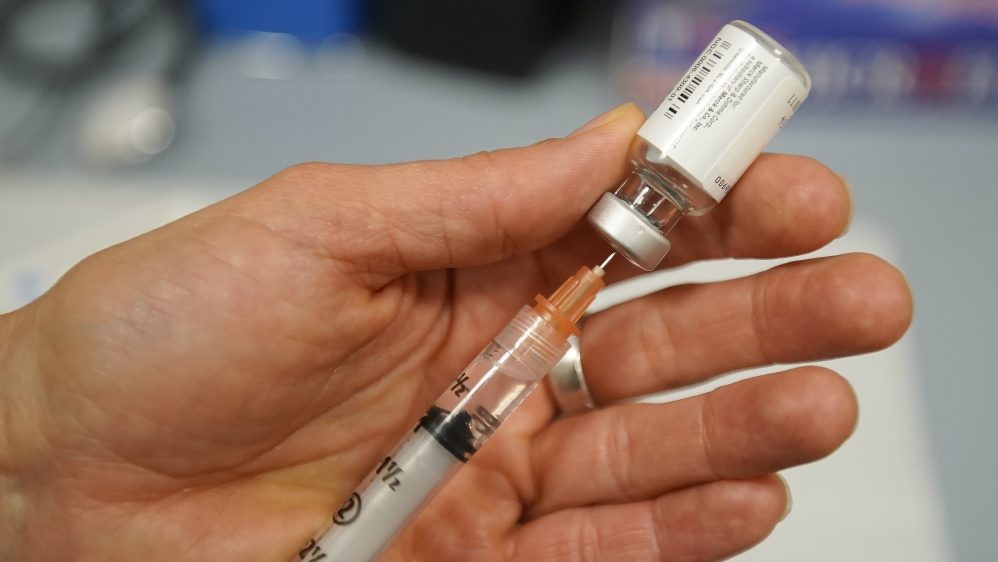
At least 42 people have died from a measles outbreak in a little more than a week in Nigeria’s northeastern state of Adamawa, the state’s health commissioner says.
Felix Tangwami said on Friday that the measles outbreak had mostly affected two local government areas where nearly 200 suspected cases were identified.
“Measles vaccines have been released to those areas and our field teams are containing the situation,” he said at a media briefing.
Measles is a highly contagious, airborne virus that mostly affects children under the age of five. It can be prevented by two doses of vaccine. Its early symptoms include high fever, cough and runny nose. It also often causes rashes and bumps all over the body of the patient.
More than 50 million measles deaths have been averted through vaccinations since 2000, according to the World Health Organization.
Widespread insecurity in many northern Nigerian states is often blamed for disruptions in vaccination campaigns, leaving children particularly vulnerable.
Since the armed group Boko Haram started launching attacks in Nigeria in 2009, more than two million people have been displaced from their homes, spawning one of the world’s worst ongoing humanitarian crises. Criminal gangs have further deepened security woes in northwestern Nigeria.
The COVID-19 pandemic has also disrupted the health system and vaccination programmes in parts of the country, according to Doctors Without Borders, known by its French initials MSF.
MSF said earlier this year that the inability of public health actors in Nigeria “to achieve the 95 percent vaccination rate required to suppress measles” led to an alarming rise in the number of people affected by the virus last year.
MSF said it treated 3,965 patients between October and December.
“This is notably due to the difficulties for health workers in accessing rural communities surrounding Maiduguri,” Jombo Tochukwu-Okoli, MSF medical activity manager at the Gwange Pediatric Hospital in the capital of the northeastern state of Borno, said in a statement in February.
The virus can spread quickly among unvaccinated children. “One infected child can spread the virus to between nine and 12 other unvaccinated children,” Tochukwu-Okoli said.







